Alright – so today we’ve got the honor of introducing you to Tania Moldovan. We think you’ll enjoy our conversation, we’ve shared it below.
Tania, looking forward to hearing all of your stories today. Can you talk to us about how you learned to do what you do?
Learning the craft! There are many stories I could think of, but one of the most memorable and impactful ones happened right after I came to continue my studies in violin/music in the United States. I was fortunate enough to receive a full scholarship at Bowling Green State University in Ohio. I was about to study with a great professor who also grew up in Romania, like me. I started playing the violin at an early age and have always been a hard working student. I followed my teachers’ instructions very well, always accomplishing what my teacher and I were working on. All that changed after I moved to the US. My new professor was very different. I remember during one of my first lessons we focused on a single phrase for the entire lesson. I was thinking to myself that if this is how all my lessons will be I will never learn an entire piece of music. He was teaching me how to practice effectively, how to solve problems in a short amount of time, and most importantly, how to never give up until “it sounds better than Perlman”. If you know who Itzhak Perlman is, then you know how difficult this would be to accomplish. All these things were such foreign concepts for me at the time. My teacher encouraged me to be creative in my playing, and always do it in a convincing way, for the audience.
I realize now that I have learned some really valuable lessons from him! I use these experiences in my teaching/practicing/performing on a daily basis. I love the process of discovering new ways to practice, to interpret music, and just being very creative in learning the craft of violin playing and teaching. Learning something new is always a challenge! Taking on a challenge like that, and being eager to learn something new is such a wonderful feeling. I now teach violin myself, to many young and adult students, and I admire them so much for their courage. I see a little bit of myself in them everyday.
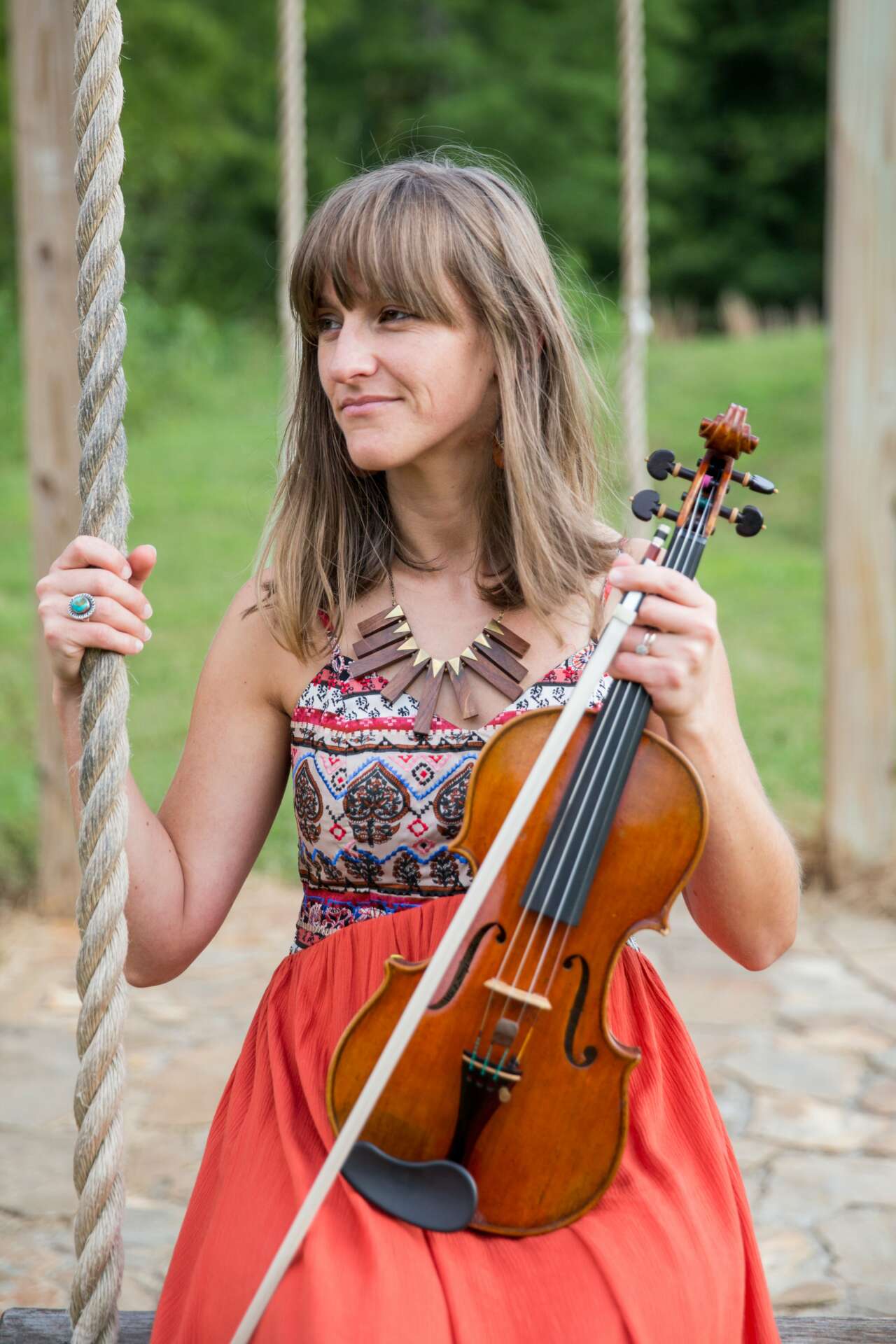
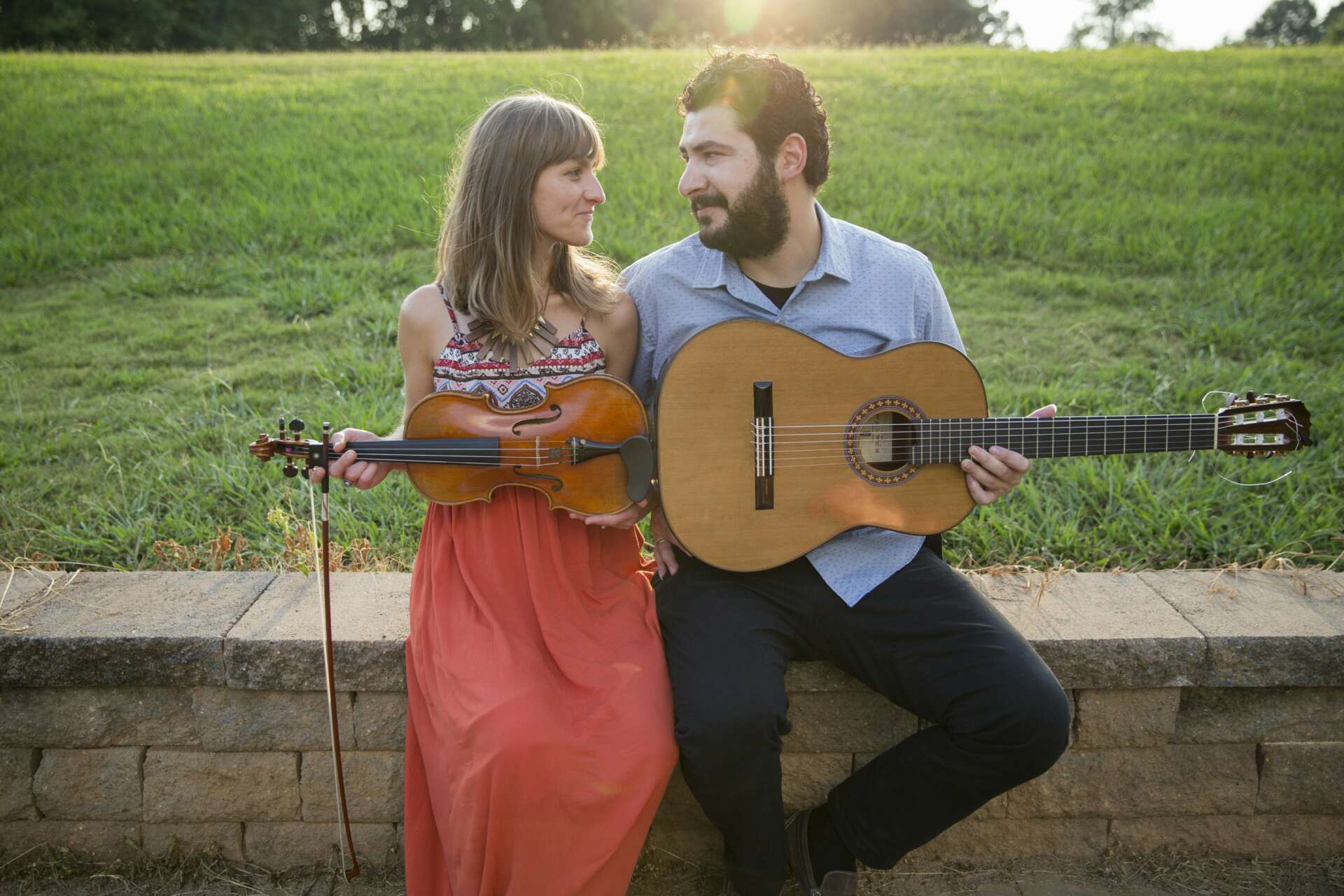
Tania, before we move on to more of these sorts of questions, can you take some time to bring our readers up to speed on you and what you do?
I started playing the violin at age six. My parents bought a small Chinese made violin on one of their trips to Poland and had it laying around the house. I do not remember expressing interest in playing the violin initially. One of our neighbors was the choir director at the music school in my home town. She guided my parents to a violin teacher at the school and the rest is history. It just stuck with me.
My first teacher was very dedicated, patient, and saw something special in me. She worked hard with me. Her love and support always guided me to continue on this path. I went to lots of competitions and played many concerts during my schooling. I moved to a different city, although I was quite young, just to continue studying music, this time at the prestigious “Sigismund Toduta” Music High School. There I had some of the most amazing teachers and mentors.
Moving to the US was a big, scary step. I received a lot of support and help while on this journey. There are many people who helped me along the way, just from the goodness of their heart, and I am very grateful for that. It was hard to start a new life away from home and away from all that I had been used to. After graduating from Bowling Green State University in Ohio, I moved to Florida to pursue a doctoral degree in violin performance at the famous Florida State University College of Music. I fell in love with all the music, the green, lush nature there, and also with a handsome guitar player who now is my husband, and who I also play music with as a duo.
Today we are still in Florida where both us teach and perform full time. Dividing my time between performing and teaching brings many challenges. Especially so when the season is in full swing. However, I find that each of these experiences usually ends up representing very meaningful moments in my life, sooner or later. I am thankful for them. I realized early on that the more I perform, the better I get at teaching, and vice versa.
I talk with my students about the importance of performing, and about how to learn a piece of music really well and then bring it to performance level. I incorporate all that I learned from my teachers both in my practice sessions and when I teach my students. I am proud to be a musician, to be able to do what I love. Making a living from music can be difficult at times, but the rewards are many. Most especially, I feel fulfilled professionally when I feel the appreciation of my audience in concerts, or when my students are doing really well, but also when experiencing the joy of making music with others. I am thankful for all of these.
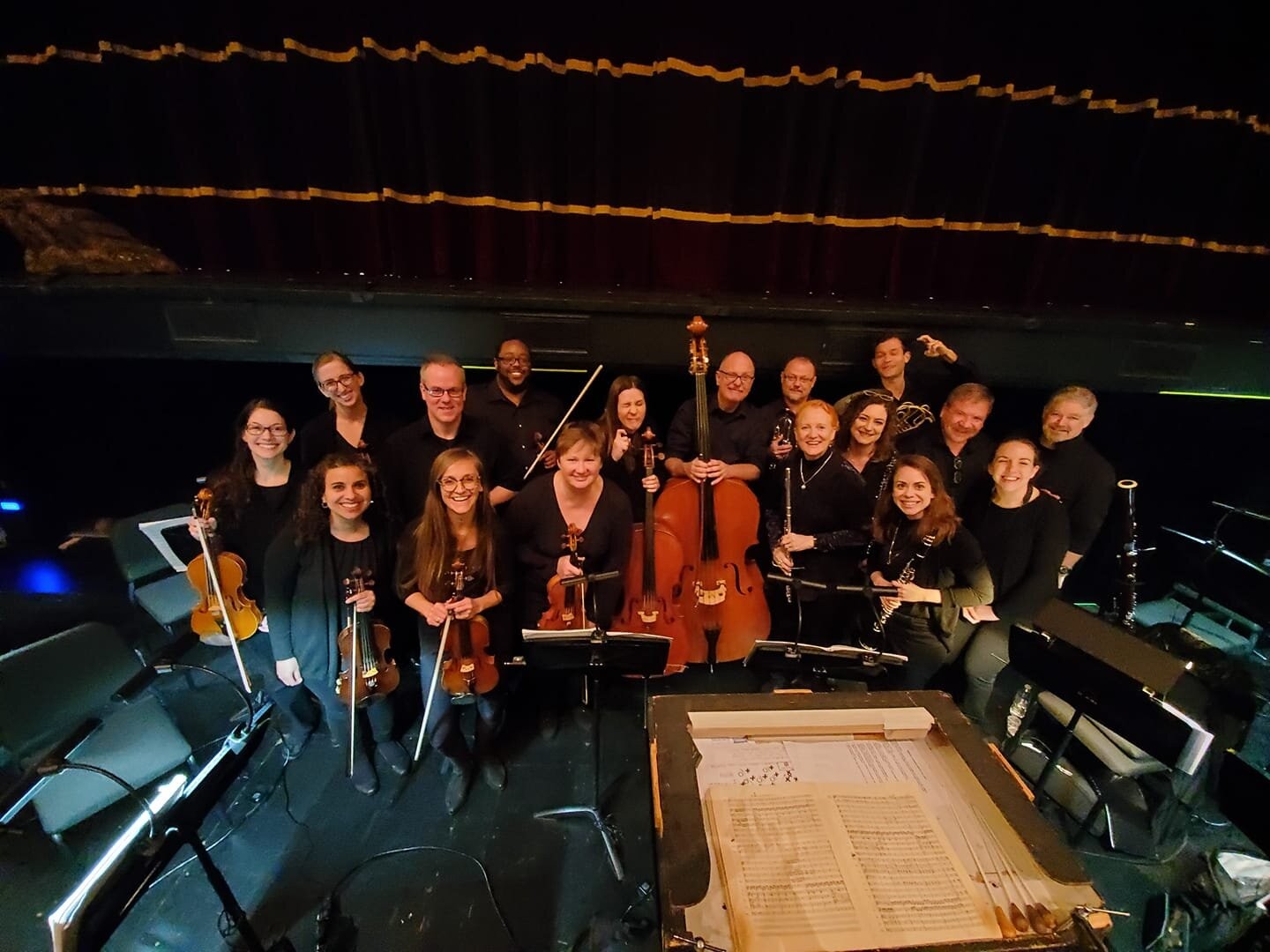
Let’s talk about resilience next – do you have a story you can share with us?
A story? My whole life! Being resilient is crucial for musicians. We would never get better or be able to make it to the next step without resilience. There have been moments when I felt being a musician was too hard. We spend so many hours practicing. Progress takes time and perseverance. There is no instant gratification. Instead, many hours of hard focus and repetition will be the reward, until it’s perfect. This process can be daunting at times, but coming out at the other end successfully is also so much more rewarding. Also, never giving up!
I rarely dwell on this, but really, I have to be resilient everyday. Sometimes I felt like I made progress during my practicing session, only to come back the next day to discover that I actually went a couple of steps back. When we want to get better we are forced to become more creative, to find new ways, to be more resilient. Such experiences are many. As a musician there is always some new music to learn. It’s either repertoire for the next concert or for the next audition or recording. Sometimes, when things don’t go as expected, I tend to think that there is a reason for that happening. There’s a lesson to be learned there. So, I get back to work and prepare for the next thing. You got to get back to it!
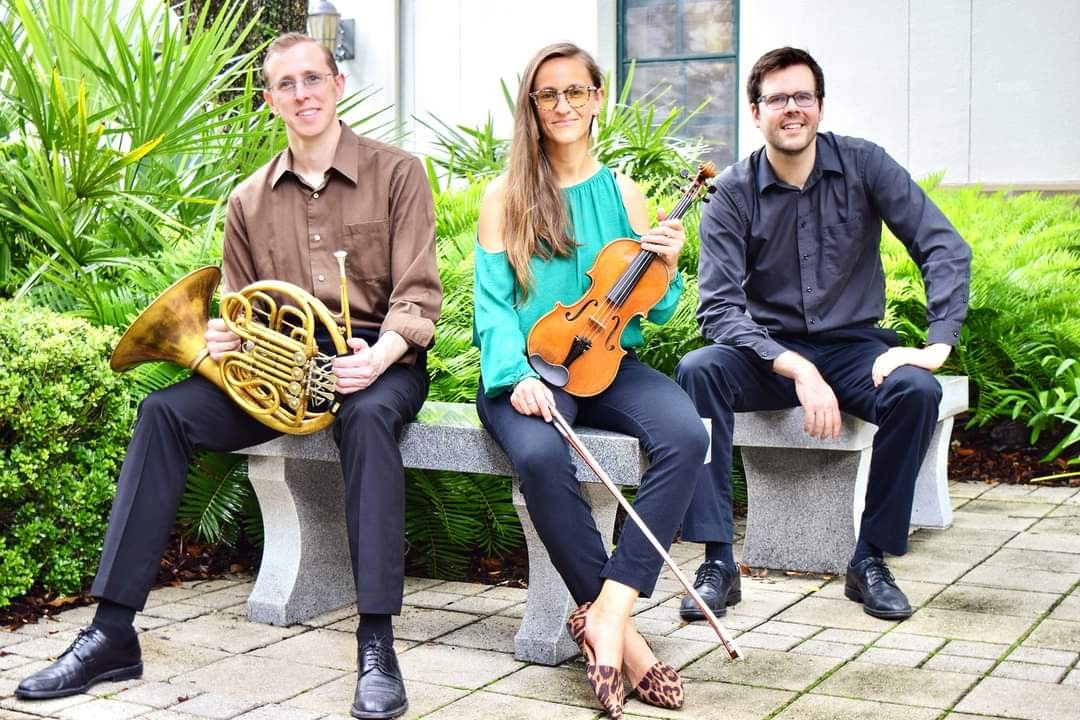
Is there a particular goal or mission driving your creative journey?
One of my missions as a musician is to educate the next generation of musicians. We don’t think about it very often but music is very important for humanity. Think about it! Through music we can express feelings, thoughts, and experiences. Music makes us happy, sad, nostalgic. How entertaining would movies be without music? Next time you watch a movie, or a show listen to the soundtrack. How engaging is it? I want my students to understand that playing music is a wonderful skill.
As a performer, my goal is to not only to engage the audience in the music I am performing, but also to bring in the community I live in into my music. I am working with a few musician friends on presenting concerts to audiences in more unconventional settings. We have worked with art galleries, bars, and coffee shops, and have recently been expanding to other new venues such as libraries and schools. How important is it for a kid to be exposed to classical music early on? I’ve heard so many stories from people who became musicians after they attended a concert early in life that truly made an impact on their future. I want as many kids as possible to be able to have the opportunity to be exposed to this music, or to hopefully pick up and play an instrument. How much better humans we’d make!
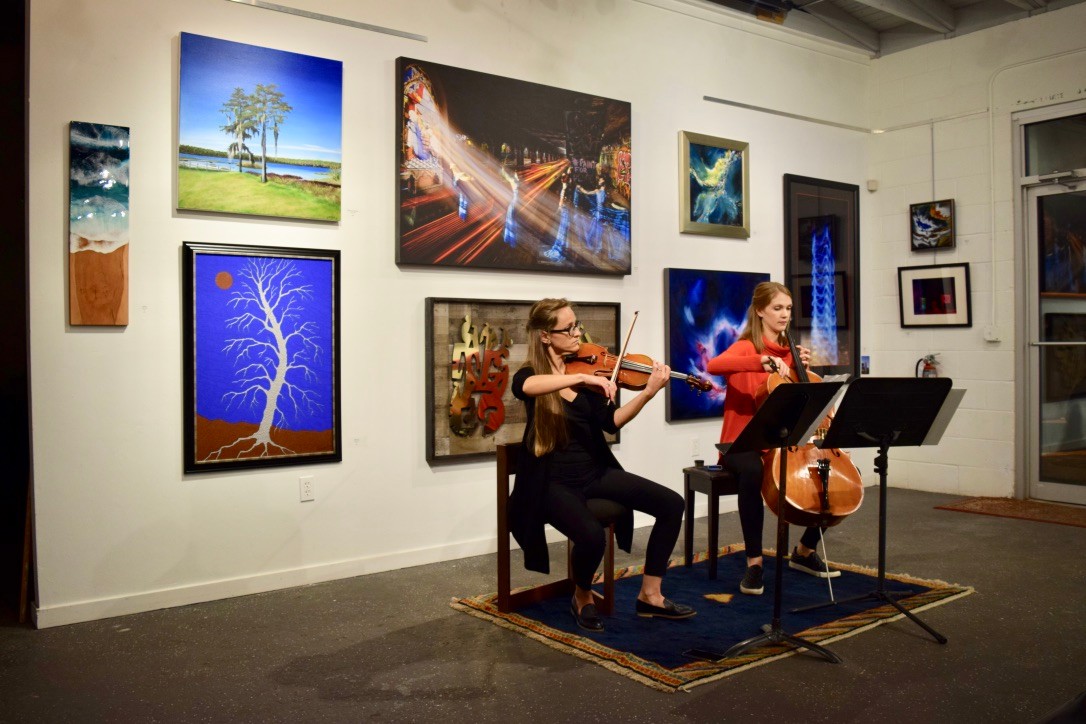
Image Credits
Ken Yanagisawa Tania Moldovan


